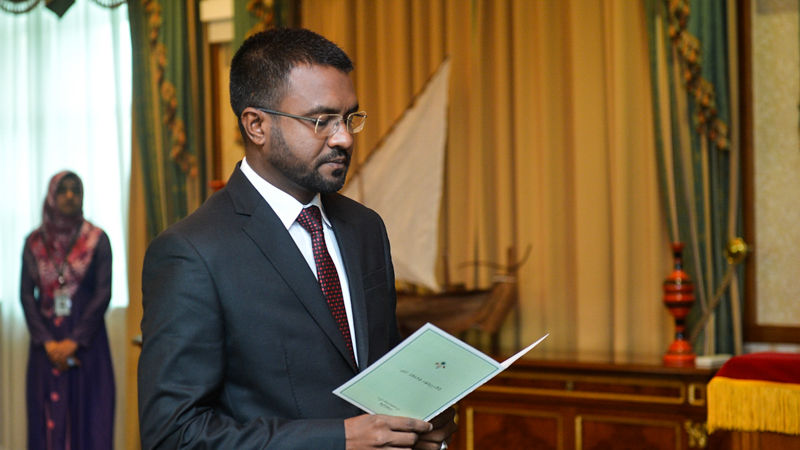Prosecutor General’s removal draws criticism over ‘due process violations’
Nikhil Narayan from the International Commission of Jurists (ICJ) told the The Maldives Independent that the “arbitrary removal” of PG Muhthaz Muhsin is the latest instance in a series of events deepening a crisis of rule of law in the Maldives.

13 Nov 2015, 09:00
The parliament’s abrupt removal of Prosecutor General (PG) Muhthaz Muhsin in a midnight vote last week has drawn criticism from international rights organisations, local NGOs, and the main opposition party.
A no-confidence motion was submitted to the parliament’s independent institutions oversight committee on Tuesday afternoon. A subcommittee summoned Muhthaz for questioning at a closed session later in the day and he was voted out at a parliament sitting abruptly scheduled that night.
The vote followed media reports that Muhsin had stalled charges of bribery against recently impeached Vice President Ahmed Adeeb, who is in police custody on suspicion of links to the September 28 explosion on President Abdulla Yameen’s speedboat.
Mushin, in a tweet the before he was dismissed, said: “It has not been decided not to prosecute any case against Ahmed Adeeb.”
Become a member
Get full access to our archive and personalise your experience.
Already a member?
Discussion
No comments yet. Be the first to share your thoughts!
No comments yet. Be the first to join the conversation!
Join the Conversation
Sign in to share your thoughts under an alias and take part in the discussion. Independent journalism thrives on open, respectful debate — your voice matters.




